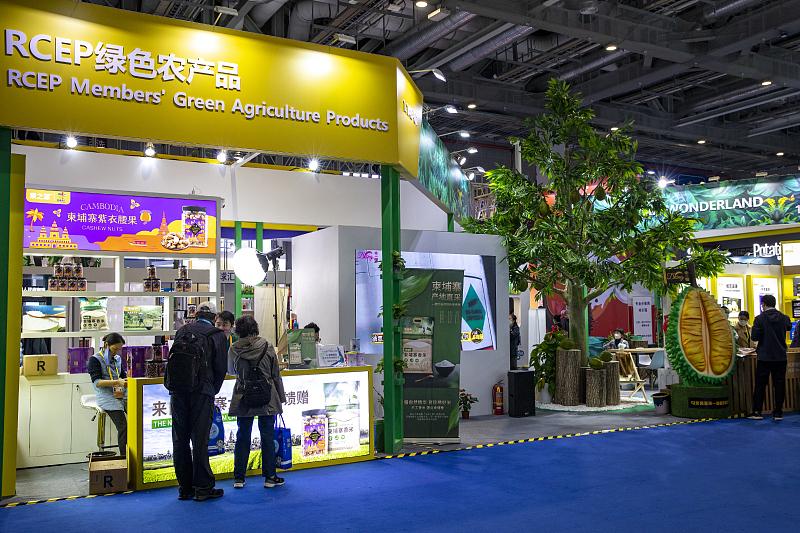

In the new era, there is no understating the endurance and promise of a China-Cambodia community with a shared future. Both countries released a joint statement towards the end of Cambodian Prime Minister Hun Sen's visit to China earlier this month, launching a series of "China-Cambodia Friendship Year" events and welcoming a multi-tier consensus to consolidate their ironclad relationship even further.
Substantial headway in the two countries' cooperation is reflected in their consensus over a "Diamond Hexagon" framework. This consensus can be seen as a landmark pursuit to put diplomatic weight behind six priority areas, from political cooperation and production capacity-building to agriculture, energy, security, and people-to-people exchanges. The evolution of China-Cambodia cooperation is a major win for both sides in several key levels, as well as for the region at large.
First, the economic determinants of their comprehensive strategic partnership stand consolidated to remarkable effect. Consider endorsement of the Sino-Cambodia trade and economic cooperation action plan from 2023-2024, accompanied by the win-win prospects of a Cambodia-China Development Cooperation Plan that stretches till 2025 and puts a premium on improving community livelihoods. Both time-tested allies have nurtured their fraternal ties for years based on the understanding that people-centric development is chief to stronger community integration, making new ground all the more significant.
Similarly, the Belt and Road Initiative's (BRI) exceptional growth in Cambodia, led by massive infrastructure facilitation and dependable investments, continues to testify to that understanding. Add to it the decision to "deepen strategic synergy and cooperation" between the BRI and Cambodia's Rectangular Strategies, and there is a conscious effort underway to build on historical strengths and extend development dividends to entire communities for regional benefit.
As the first foreign leader to visit China following this year's Spring Festival, Hun Sen's three-day visit also sent a powerful message regarding bilateral symbolism. After all, the current year marks the 65th anniversary of the establishment of China and Cambodia's diplomatic relations, and a fast-changing global environment underlines the prominence of their multi-tier cooperation vision.
One common thread that ties the China-Cambodia joint statement with top-level meetings in Beijing is Hun Sen's underlying motivation: That his visit demonstrates solidarity with China against undue travel restrictions recently imposed by select powers. It is here that high praise for China's epidemic prevention policy optimization complements the prospects of people-to-people exchange and stepped-up tourism with Cambodia. This is true especially after China declared Cambodia as one of the first countries it is set to resume outbound group travel with.
Entering the new era, a China-Cambodia community with a shared future will play a central developmental role in the broader Southeast Asian region. The very prospect of aligning wide-ranging development opportunities with the needs of the Cambodian citizenry renders the relationship a model for progressive growth in the region. Hun Sen's visit came with a shared commitment to "open regionalism," an Asia-centric view of regional harmony that China continues to champion.
Similarly, their landmark joint statement presents more potential to extend the benefits of Sino-Cambodia community development outwards, and done in a way that "the most treasured ironclad friendship" is scaled from one generation to another. Note that both leaderships are very well-positioned to deliver on such aspirations, given the wide range of political and development fields concentrated in China's proposed cooperation framework with Cambodia.
At the same time, Hun Sen is united with the time-tested ally China in acknowledging the promotion of ASEAN-China relations as a regional priority. Their noble pursuit for an early conclusion of the ASEAN-China Code of Conduct (COC) for the South China Sea delivers principled pushback against undue external interference and confirms that negotiated peace remains paramount on both bilateral and regional levels.
Taken together, the Cambodia-China view of a shared future is a recipe to bolster traditional ties while catering to the continued progress and integration of the region. The end result is a continuous upward trajectory for their comprehensive strategic vision, first consolidated back in 2010 and now destined for even greater heights in the new era.
The article is written by Hannan R. Hussain, a foreign affairs commentator, author and recipient of the Fulbright Award.